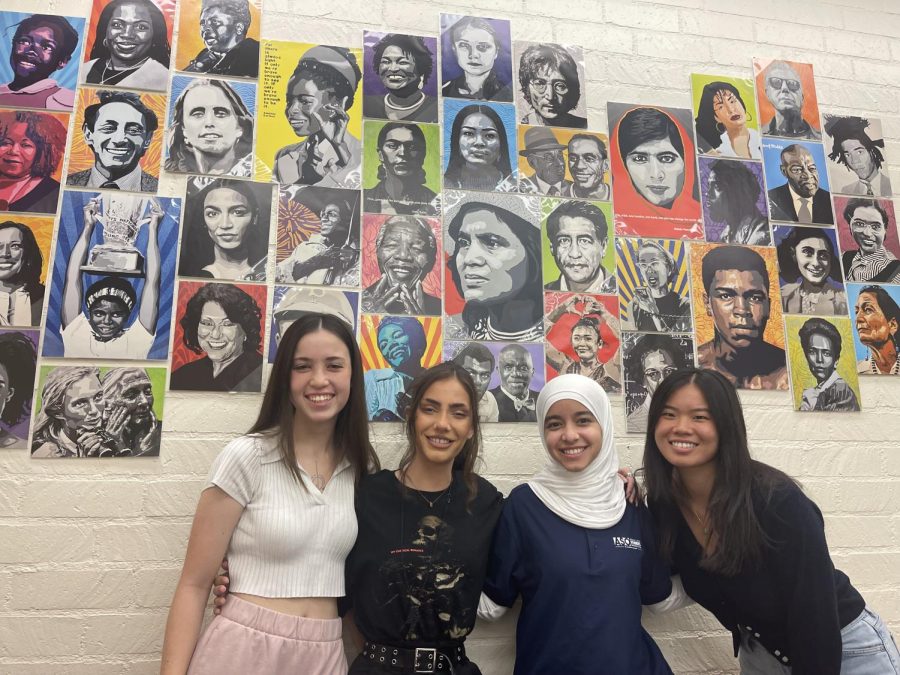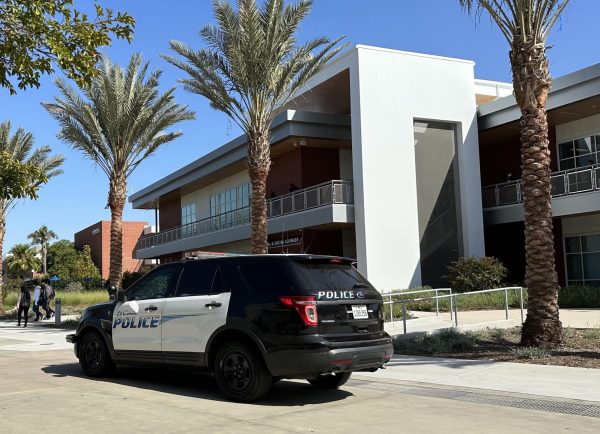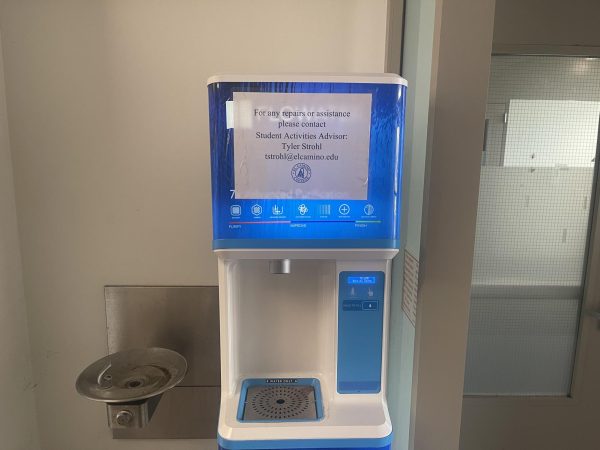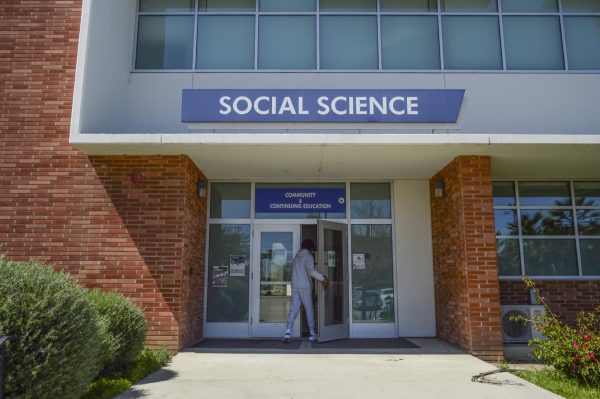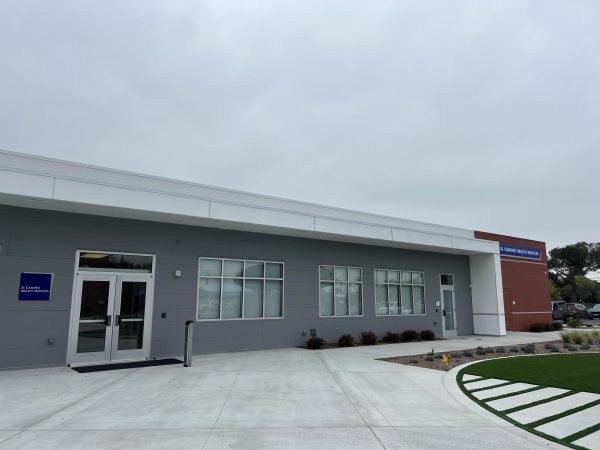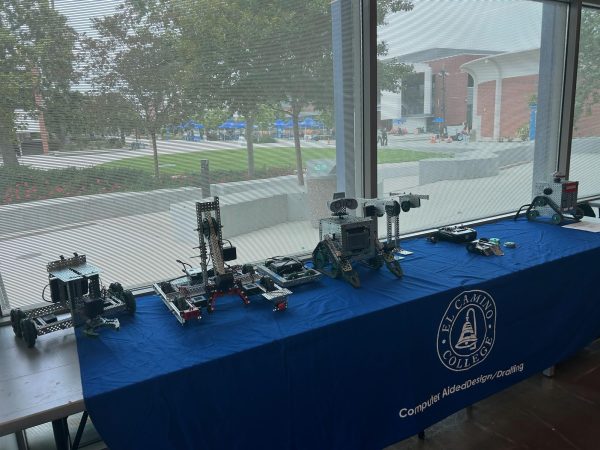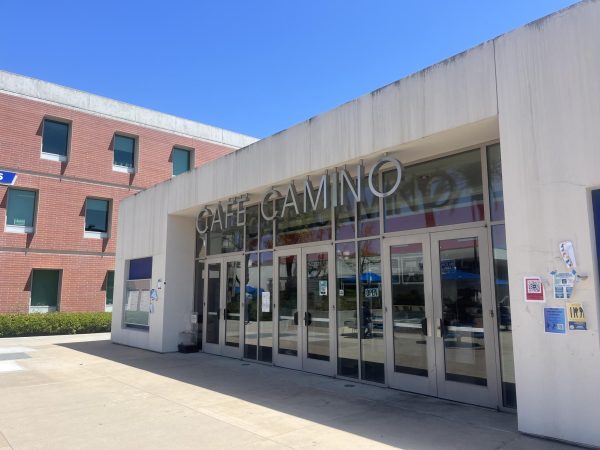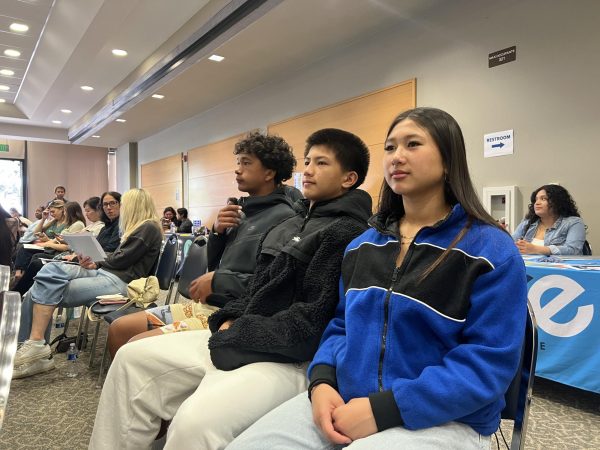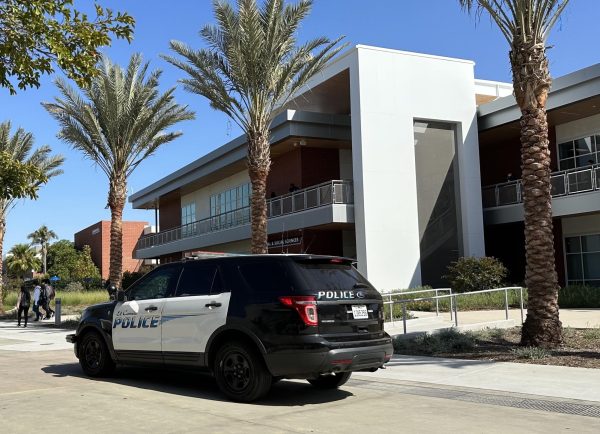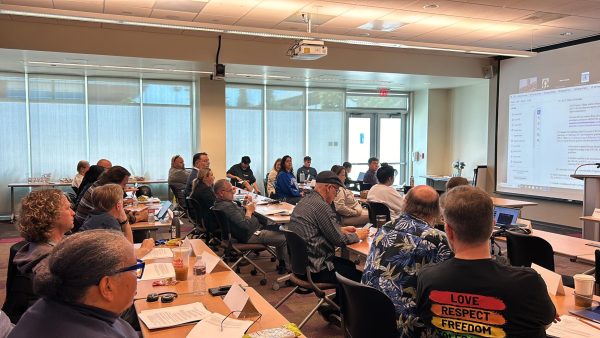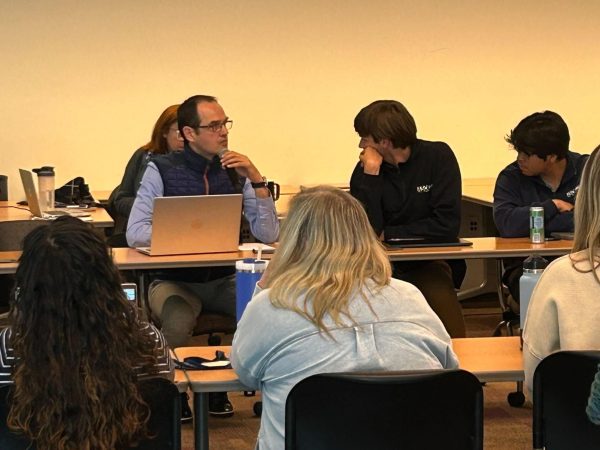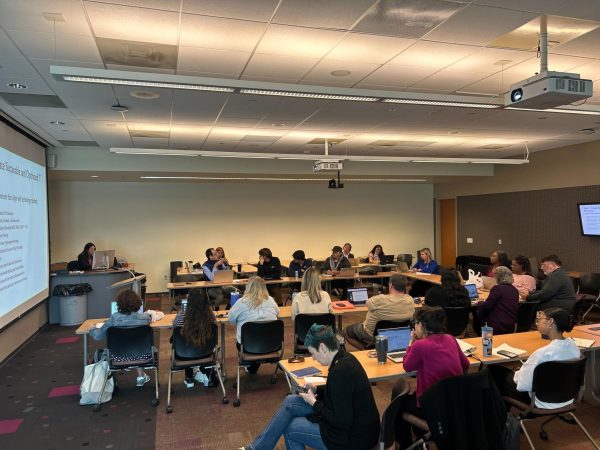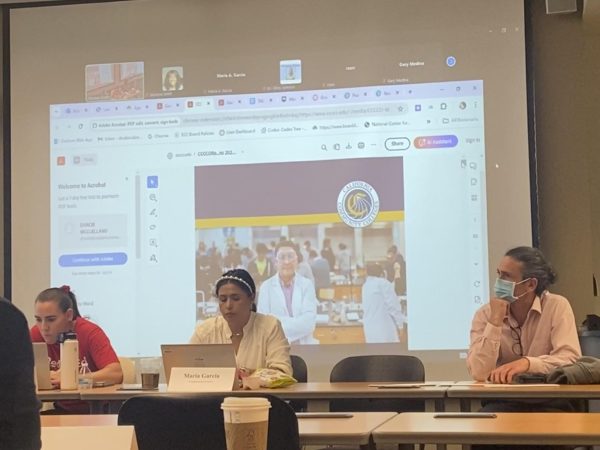Student government aims to increase access to menstrual health products
El Camino College Associated Students Organization members (left to right) Senator Rebecca Gloyer, Senator J Arden Jackson, ASO President Jana Abulaban and Student Trustee Sidney Lee at El Camino’s Social Justice Center on Thursday, Oct. 19. The group serves on the ASO Initiatives Committee that is working to provide menstrual health products on campus.(Kim McGill | The Union)
Free access to menstrual health products could soon become more accessible around campus.
Other factors, such as a new state law, a growing social movement and renewed pressure from students contributed to El Camino College working to provide free health products.
The Menstrual Equity for All Act says community colleges must provide an “adequate supply” of menstrual products, free of cost, on campus.
For several years, El Camino College’s Associated Students Organization discussed the possibility of providing menstrual health products to students. Previously, the college did not support their requests, citing costs and logistical challenges.
Student Trustee Sidney Lee said talking to college administrators has been difficult.
“Previous discussions with the administration were hard,” Lee said. “They felt there were other more pressing matters, and it was difficult without funding or backing from the state.”
Lee credited the current administration for being more supportive and said students should not have to ask for menstrual products.
“Menstruation products should be as common as toilet paper,” Lee said. “People shouldn’t have to pay for them.”
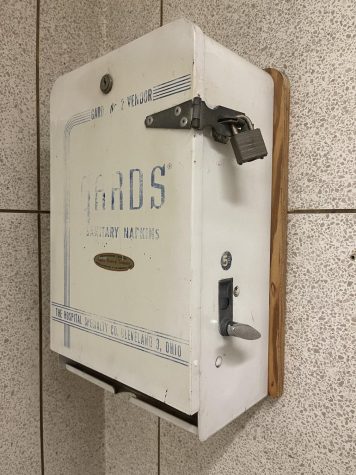
Lee and other Associated Students Organization members have also discussed why free and private access is essential for transitioning and non-binary people who experience additional discrimination, barriers and safety issues.
Studio art major Mia Vargas said she forgot her menstrual products but found someone who could help her.
“There were a couple of times at El Camino where they were in my car, but I forgot to bring them, so I had to go around and ask people,” Vargas said. “Luckily, every time, I found someone.”
Vargas said that when you get put into a tough place at school, it could help if the bathrooms had menstrual products.
“Personally, I have never been to the nurse’s office here, and I don’t know if they give out free tampons or pads. That would be great if they did,” studio art major Mia Vargas said. “But I have noticed that there aren’t tampon dispensers in the bathrooms here and that’s a shame. When you get in that place where you really need one, it’s like an emergency situation and they should be available.”
Graphic design student Bianca Muñoz said that most people don’t carry spare change in today’s modern age.
“It would be really nice if El Camino bathrooms were stocked free of charge,” Muñoz said. “Especially with the world going cashless, we don’t carry around change as much.”
Faculty Coordinator of Student Health Services Susan Nilles said she has been working alongside the Associated Students Organization and El Camino College’s administration to develop new policies and procedures for more significant health equity on campus.
“I have recommended that we talk to students about where they want supplies,” Nilles said. “Students should have access where they already are in the privacy of a bathroom and through the programs they are a part of.”
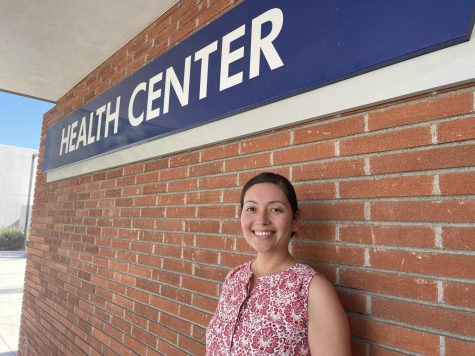
Nilles said free menstruation products have long been available at the Student Health Center.
Nilles has been a nurse since 2008 and has been at El Camino College since 2016.
She recognized that many students don’t know about the Health Center and that it’s likely they would not have the time needed to walk across campus to access products, especially in an emergency.
“It’s essential that [El Camino College] stock basic-needs supplies in areas where students want them,” Nilles said.
In addition to identifying the difficulty of finding products on campus, students spoke out about the anxiety they feel discussing their menstrual needs and experiences with others.
Studio art major Zamira Recinos said it is difficult asking for menstrual products.
“[It’s] kind of nerve-racking,” Recinos said. “Especially if you have social anxiety or overall nervousness around strangers.”
Recinos added she has had to ask for products.
“I have had to ask around if I don’t have my own, and I’ve also been asked if I had any menstrual products as well,” Recinos said. “There’s never really any options other than asking.”
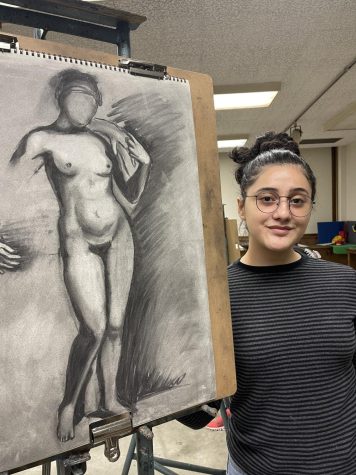
BioMed Central, a clearinghouse medical research company, conducted a study examining menstruation products among college students.
The data revealed that 14.2% of students surveyed were unable to purchase menstrual products during the past year and an additional 10% could not pay for products on a monthly basis.
The report found that many people “cannot afford menstrual health products, which may impact their mental well-being.”
Nilles wants students to use the Health Center to access free or very low-cost medications, birth control, preventive, primary and mental health care.
“Rather than ditching class all day to pay for the bus, parking, co-pays and medication, students can access health care here on campus,” Nilles said. “We are looking for you to be as healthy as possible in order to be successful as a student.”
Editor’s Notes:
- Fixed wording in the lead to provide more context and corrected several grammar errors on Oct. 20, 2022, at 10:29 a.m.
- Provided more story context on Oct. 20, 2022, at 10:36 a.m.


